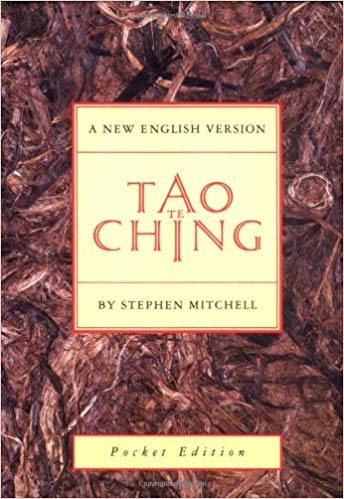【コラム】JUICE #31「Life Lessons from the Tao Te Ching. (老子の教え)」●ゲイラー世羅

Note: All quotes are from the Stephen Mitchell translation of the “Tao Te Ching”. [1]

In recent years, people in modern societies have increasingly begun to look to ancient Eastern teachings for guidance in their daily lives. One source of such teachings is the “Tao Te Ching”, an ancient collection of verses written over 2,300 years ago by a mysterious Chinese scholar known only as Lao Tzu (老子). The verses of the “Tao Te Ching” are full of paradoxical statements that often seem to contradict themselves if taken literally.
However, the longer a person lives, the more frequently he or she encounters situations where strict rules or beliefs appear to break down and do not seem to work.
For example, people say that you cannot accept other people and yourself in your twenties and that, when you turn thirty, you will become more accepting of others. But I cannot imagine that I will suddenly be able to understand other people when I turn thirty. Even so, I would like to polish my skills, be kind to others and myself, and become a better person however I can. Lao Tzu always leads me in the right direction when I feel something is wrong with my thinking. It is still difficult for me to understand the core meaning of the Tao Te Ching and use all its lessons, but I would like to be a Master like Lao Tzu.
So what is the Tao? Searching through the Tao Te Ching to find a definition is difficult, but Lao Tzu does say this about the Tao:
“There was something formless and perfect
before the Universe was born.
It is serene. Empty.
Solitary. Unchanging.
Infinite. Eternally present.
It is the mother of the Universe.
For lack of a better name,
I call it the Tao.”
Verse 25, TTC [1]
Below are two life lessons taken from the “Tao Te Ching”. If practiced in your personal life and work, they have the potential to positively transform your interactions with others, your view of yourself, and your own peace of mind.
1. Be like water.
One teaching in the “Tao Te Ching” that comes up again and again is that one should be like water:
“The supreme good is like water,
which nourishes all things without trying to.
It is content with the low places that people disdain.
Thus it is like the Tao.”
Verse 8, TTC [1]
Water is humble because it is content to fill up the low places, without being concerned with standing out or being on top. In another verse, Lao Tzu describes how this humility is actually beneficial to the person:
“All streams flow to the sea
because it is lower than they are.
Humility gives it its power.”
Verse 66, TTC [1]
The people who are like this in life tend to be much easier to work with because they are concerned about what matters, not their own selfish interest. They can be depended on to contribute and do the work that must be done, not only the glamorous work. Therefore, they are in high demand as relationship partners and on organizational teams.
In addition, water also has the property that, when left alone, the impurities settle to the bottom and the water becomes clear, a metaphor which Lao Tzu uses to describe settling our inner desires, which can cloud our minds:
“Do you have the patience to wait
till you mud settles and the water is clear?
Can you remain unmoving
till the right action arises by itself?”
Verse 15, TTC [1]
By being like water, we give up the idea of fighting for our own interests and we instead flow with the current of life around us, using its flow to power the changes in our own life the way we want. Like a captain steering a boat on a river, we realize that going against the current of the river requires much effort, so we prefer to flow with the current of life whenever possible, conserving our energy for those times when we must make big changes.
Furthermore, water is also flexible because it can take the shape of anything and it can dissolve pollutants, diffusing things and situations which would otherwise become confrontational:
“Nothing in the world
is as soft and yielding as water.
Yet for dissolving the hard and inflexible,
nothing can surpass it.
The soft overcomes the hard;
the gentle overcomes the rigid.
Everyone knows this is true,
but few put it into practice.”
Verse 78, TTC [1]
By being like water, we empower ourselves by not wasting energy fighting against others and turning them into enemies. By not fighting others, we instead turn them into allies and are able to work with them, no matter how difficult or unpleasant they may be.
2. Do not seek. Instead be present.
“The Master doesn’t seek fulfillment.
Not seeking, not expecting,
she is present, and can welcome all things.”
Verse 15, TTC [1]
When we try to force life to be the way we want by stubbornly clinging to long-term plans or trying to change a situation we don’t like, life eventually sends us something that makes things more difficult. And when we continue to cling stubbornly to our plan and do not adapt, we begin to feel frustrated and also miss out on opportunities which might lead us to a better outcome, instead choosing to become locked in an unhappy situation, always hoping for that long-term plan to finally be realized.
The Tao Te Ching teaches that life is forever out of control and that if we stubbornly try to force it to be the way we want, we will actually end up frustrated and disappointed. Instead we should let life take its course and try to flow naturally with it:
“The Master allows things to happen.
She shapes events as they come.
She steps out of the way
and lets the Tao speak for itself.”
Verse 45, TTC [1]
This doesn’t mean that we do not work toward goals in life. When we accept that life is out of our control and instead become more present in our everyday life, we can select those experiences and opportunities that we desire. In this way, we grow a future that is connected to our present. We begin to accept life as it is and are finally able to effectively change it.
When we decide to do something in life, we should put our whole self behind it, become one with the activity, and then forget about it once it is completed:
“Express yourself completely,
then keep quiet.
Be like the forces of nature:
when it blows, there is only wind;
when it rains, there is only rain;
when the clouds pass, the sun shines through.”
Verse 23, TTC [1]
By not attaching our sense of self worth to an activity once it is completed, we gain the freedom to move on to the next thing. In the end, though, we can choose to either be content with what we have or forever feel that life is lacking. The choice is ours:
“Be content with what you have;
rejoice in the way things are.
When you realize there is nothing lacking,
the whole world belongs to you.”
Verse 44, TTC [1]
If we accept how life is and stop seeking for an imagined future, we can begin to work with life as it is right now and organically grow a life we love, as a tree grows from a seed, sunlight, water, and soil.
If put into practice, these two life lessons can have great positive impact on your life, relationships, and peace of mind. By practicing the art of being like water, you stop fighting life’s challenges and learn to use them instead. Life ceases to become a daily struggle. By not trying to force life to be how you want and instead focusing on accepting life how it is and being more present, you are able to use all the opportunities around you right now.
These lessons often contradict the “common sense” of modern society, so many people may be skeptical. However, for those who doubt the wisdom of the Tao Te Ching, I’ll leave the final word to Lao Tzu:
“When a foolish man hears of the Tao, he laughs out loud.
If he didn’t laugh, it wouldn’t be the Tao.”
Verse 41, TTC [1]
[1] Mitchell S. Tao Te Ching Persona. Harper Collins; 1992.
—————————————————————————————–
Written by ゲイラー世羅
ゲイラー・せいら●日本映像翻訳アカデミーロサンゼルス校の受講生・修了生サポート部門スタッフ。
—————————————————————————————–
「JUICE」は日々、世界中のコンテンツと対面する日本映像翻訳アカデミーの講師・スタッフがとっておきのトピックをお届けするフリースタイル・コラム。映画・音楽・本・ビデオゲーム・旬の人、etc…。JVTAならではのフレーバーをお楽しみください!
バックナンバーはこちら









